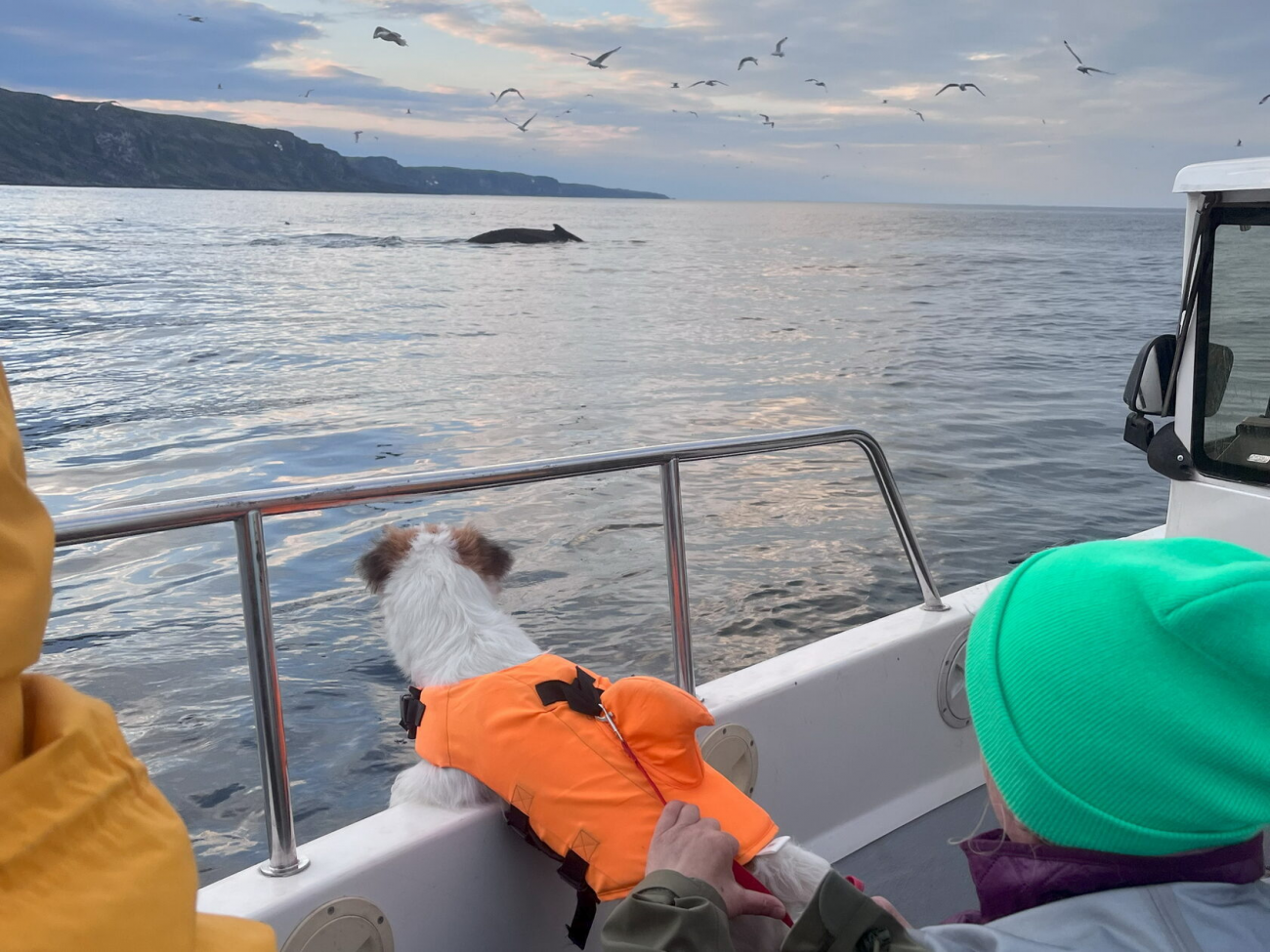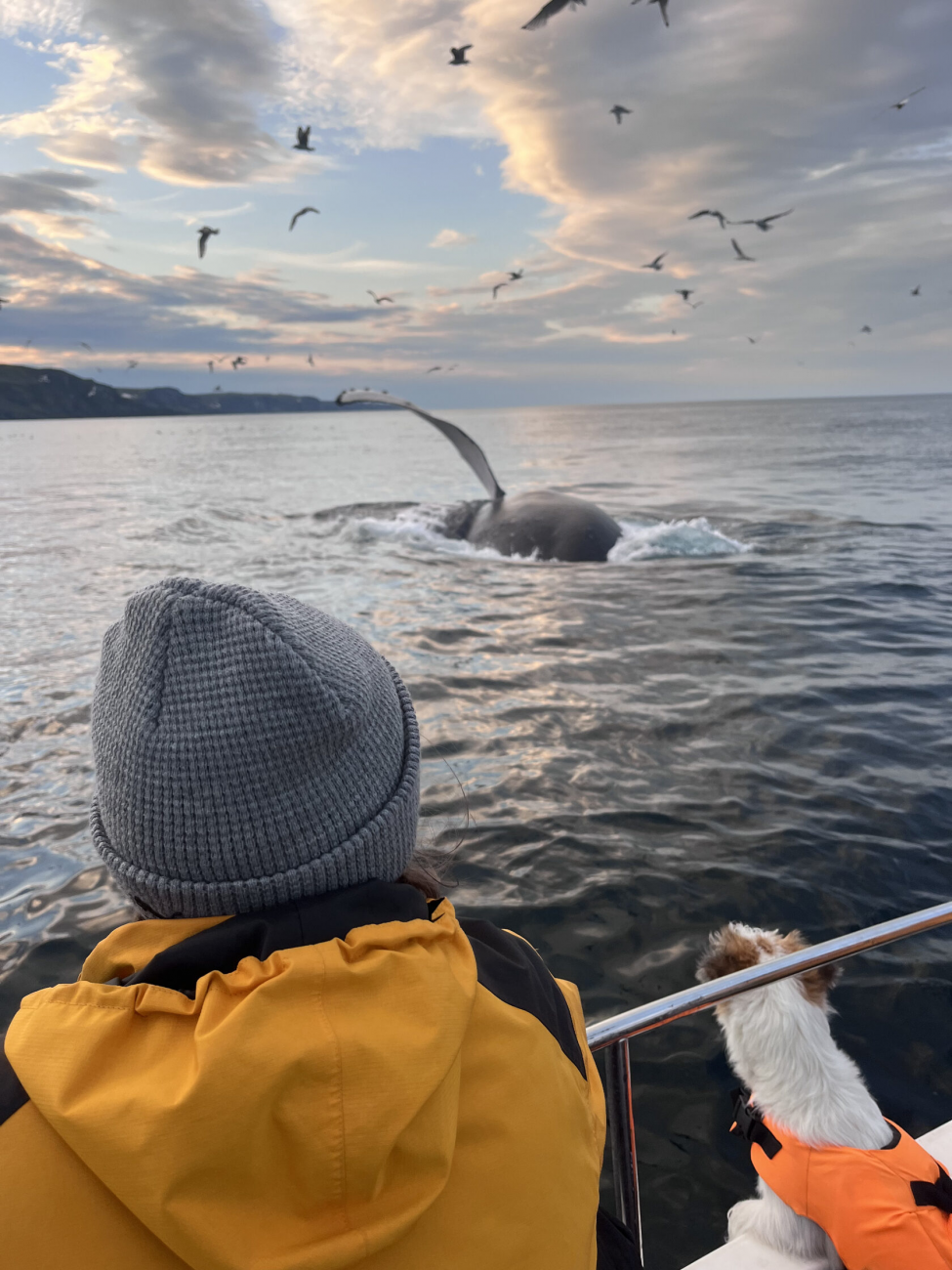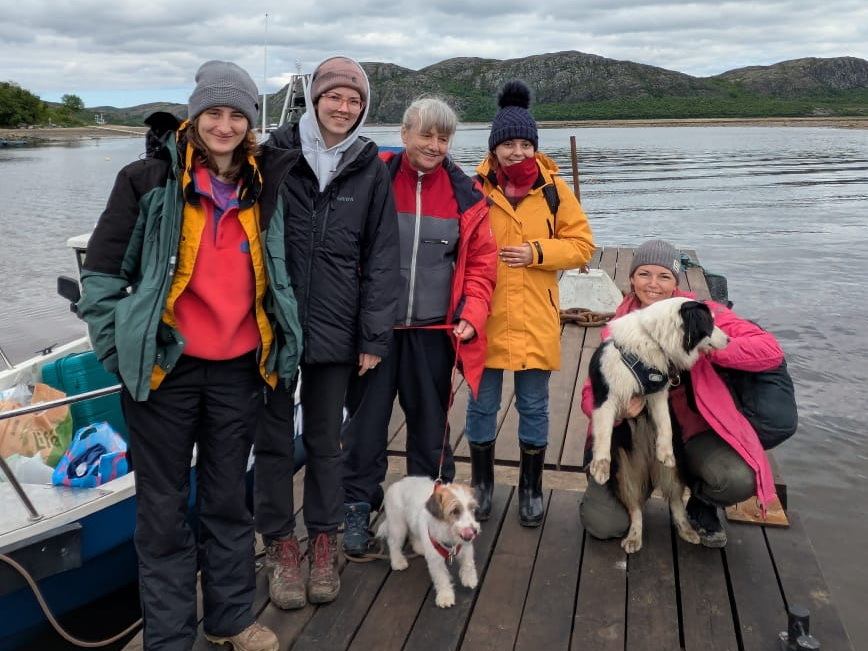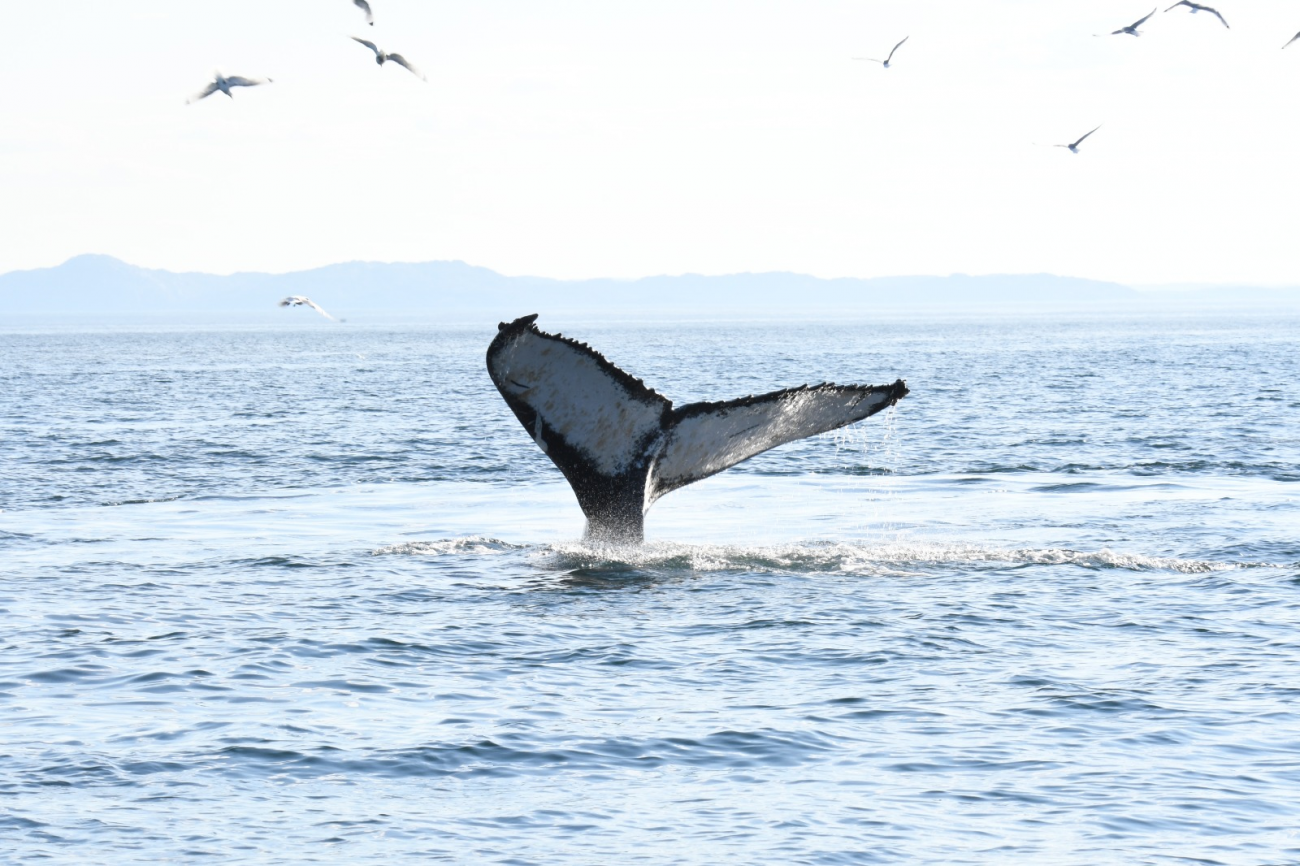
A Jack Russell Terrier named Zhuzha was taught to search for whales by smell. This is the first time such an experiment has been conducted in our country. In the future, the animal’s unique skills will help scientists in their work on studying rare cetaceans. The project is being implemented by the Nature and People Foundation with the support of the Siberian Wellness “World Around You” Foundation in partnership with the Institute of Ecology and Evolution of the Russian Academy of Sciences.
The experiment started a year ago. Then Zhuzha became a full-fledged participant in the expedition to study bowhead whales in the Sea of Okhotsk. She tolerated the seas well, easily adapted to life on a ship, and showed the makings of a good whale “seeker”.
This year, scientists went to the coast of the Barents Sea, whose waters house the endangered humpback whales, Minke whales, killer whales, porpoises, and other marine mammals. The team went out to sea five times, and each time Zhuzha demonstrated excellent “nose work”.

"We were pleasantly surprised that our little colleague had not lost her skills in a year: on the very first day, she showed a very good reaction and immediately "stayed" when approaching the whales, despite the strong pitching and lack of visual contact," says junior researcher at the Institute of Ecology and Evolution of the Russian Academy of Sciences Yulia Ganitskaya. "Later, we managed to show her different marine mammals, and she actively responded to each of them, showing that she recognized the smell."
Scientists note that the experiment can and should be continued. And there are plans for another experiment: to teach the dog to distinguish between sea animals and give a different reaction to each of them. It can also help in the search for whale excrement - biological material is not easy to obtain, but it is an important source of information about the whales' food supply, the presence of parasites, hormone levels, etc.

During the expedition, the scientists also surveyed the coast and were able to assess the prospects for studying humpback whales in the Barents Sea.
“The northern coast of the Kola Peninsula could become an excellent location for scientific research,” noted Alexandra Semenova, an expert at the Nature and People Foundation. “In particular, Ura Bay is a good place from a logistics point of view, and is not as developed by tourists as neighboring Teriberka. It is convenient to go out to sea from here to conduct photogrammetry, collect biopsies, or tag whales, and a point for observing marine mammals could be comfortably located on the coast.”

Related materials:
Afisha: "A small but brave nose: how Russian scientists are training the dog Zhuzha to find whales"
Pravmir: "Jack Russell Terrier Zhuzha has become the first dog-biodetector of whales in Russia"
TASS Science: "The coast of the Kola Peninsula may become a location for studying whales"
Pravda: "Whales under control: who is helping scientists in the Arctic - you won't believe it"
Vesti GTRK Murman: "In the Murmansk region, a dog was taught to search for whales in the dark and fog"
Krasnaya Vesna: "A dog was trained in the Barents Sea to search for whales by smell"
News of the Murmansk region: "She can find them by the smell: Jack Russell Zhuzha learned to search for whales in the Barents Sea"
ASI: "A base may appear on the Ura Bay on the Kola Peninsula for the study of whales"
